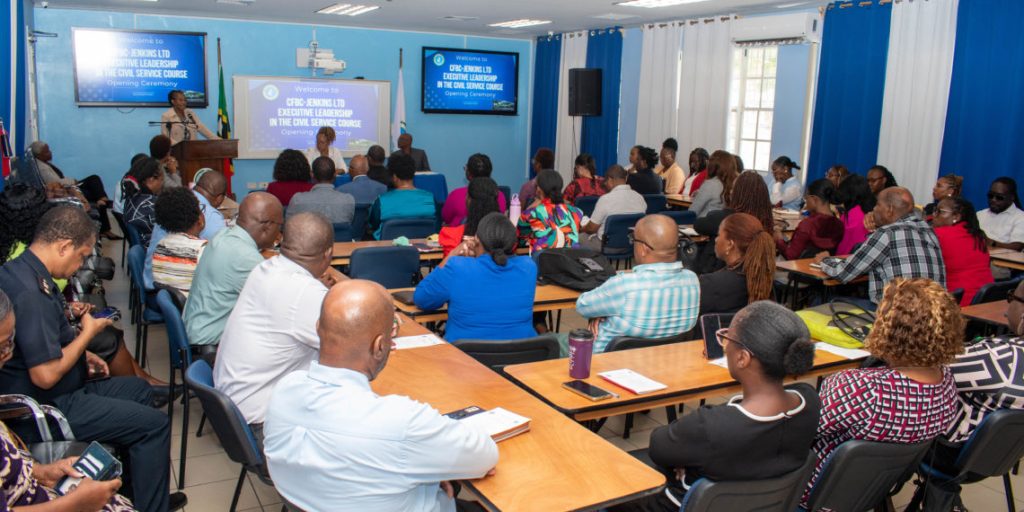Premier Brantley Highlights Nevis’s Climate Finance Leadership at the 2025 Global Steering and Innovation Summit.
The Honourable Mark Brantley, Premier and Minister of Finance and Energy of Nevis, showcased the island’s pioneering approach to securing climate finance at the inaugural Forum on Climate Finance for Subnational Island Jurisdictions and Overseas Territories, held in Nevis during the Global Sustainable Islands Summit 2025. Nevis’s successful mobilization of funds for its geothermal energy project serves as a beacon of hope and a practical model for other small island jurisdictions grappling with the challenges of accessing climate finance. This achievement underscores the potential of subnational entities to drive transformative change in the face of global climate challenges.
Premier Brantley highlighted the significance of the geothermal project, which secured full financing in February 2025. This achievement constitutes a landmark victory for a subnational island jurisdiction in securing climate finance, demonstrating the power of strategic partnerships and innovative financing mechanisms. The project’s success effectively counters the prevailing narrative that small island territories are hampered by limitations like restricted access to development aid, geographical isolation, and inflexible international financing systems. Nevis’s proactive approach involved securing funding from diverse sources, including the Green Climate Fund, the Caribbean Development Bank, the Inter-American Development Bank, and the Saudi Fund for Development, proving that strategic collaborations and blended financing models can overcome traditional barriers.
The geothermal project’s impact is projected to be transformative, generating over 100% of Nevis’s electricity needs. This surplus capacity opens doors for clean energy exports to St. Kitts and potentially the wider Caribbean sub-region, positioning Nevis as a renewable energy leader. Premier Brantley emphasized Nevis’s significant geothermal potential, exceeding one gigawatt, and its ability to not only satisfy local demand but also contribute to regional energy security and participate in emerging green energy markets. This ambitious vision positions Nevis not just as a beneficiary of climate finance but as a key player in the regional energy landscape.
Beyond geothermal energy, Nevis’s comprehensive clean energy strategy encompasses a diversified portfolio of initiatives. Premier Brantley highlighted the island’s award-winning solar-powered desalination plant, recognized for its innovative integration of solar PV systems for water production, enhancing both energy and water security. The project’s success stemmed from grant financing and a replicable design, offering a viable model for other islands facing similar challenges. Nevis’s further commitment to clean energy is evident in its exploration of wind power, utility-scale solar with battery storage, and energy efficiency improvements in public infrastructure, demonstrated by the 30% energy reduction achieved at the Alexandra Hospital.
The success of Nevis’s clean energy transition is attributed to robust policy frameworks and strong intergovernmental cooperation. Premier Brantley underscored the importance of the Nevis Energy Policy, developed within the framework of the Federal Energy Policy and national commitments. This policy prioritizes renewable energy transition, energy efficiency, resilient infrastructure, and regional interconnection, demonstrating a holistic approach to energy management. The island’s commitment is further reinforced through concrete incentives such as tax breaks, subsidies, grants, and technical support, stimulating the transition to a sustainable island state. These strategic policy decisions and proactive measures provide a clear roadmap for other islands seeking to transition to cleaner energy sources.
Premier Brantley concluded his address with a powerful call to action, urging the replication and scaling of Nevis’s successes. He emphasized that Nevis’s mobilization of millions in climate finance for the geothermal project alone serves as a testament to the ability of subnational island jurisdictions to not only access but also effectively manage transformative international investments. Nevis’s integrated approach to climate finance, coupled with bold leadership and innovation, provides a compelling blueprint for other island communities grappling with the climate crisis. This model offers a pathway for other small islands to secure the necessary funding and implement impactful climate action projects, fostering resilience and sustainability in the face of global environmental challenges.
Share this content:













Post Comment